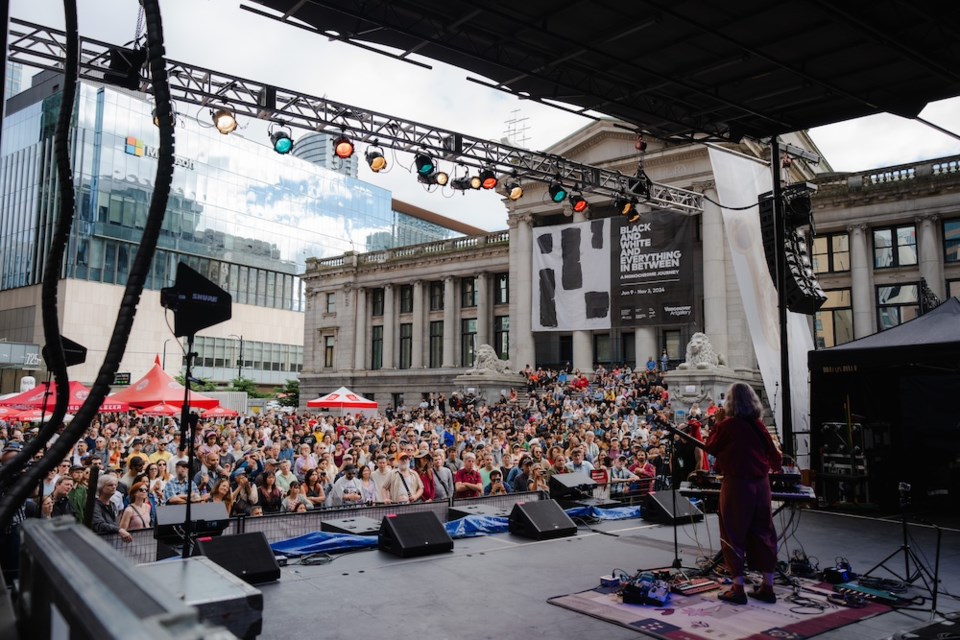The Vancouver International Jazz Festival has found flagging demand from corporations willing to become new or title sponsors of the annual 10-day music festival, which ended its 2024 run on June 30.
Most worryingly, no organization has stepped up to fill the void that TD Bank left, when in 2022 it abruptly told the festival that it would not be the title sponsor for the festival in coming years, the festival's executive director, Nina Horvath told BIV.
"We're facing pretty big challenges coming into the next year," she said. "If sponsorship doesn't change for us, we are going to have to cut back the festival again quite significantly."
British Columbia Lottery Corp. and Canadian Mortgage and Housing Corp. have been the festival's two largest corporate backers for the past couple years. Other support this year and last year came from organizations such as Granville Island, the Downtown Vancouver Business Improvement Association, Anthem Properties and Pacific Toyota Dealers, Horvath said.
She estimated that the festival generated $1.9 million this year, which is down from more than $2 million last year and $2.5 million in 2022.
Pre-pandemic, the festival tended to have budgets in the $4-million to $4.5-million range. In 2021, when the festival operated largely online, the budget was about $1.6 million, Horvath said.
Municipal, provincial and federal grants generate about half of the VIJF's budget, with corporate sponsorships providing about 13 per cent of the budget. Individual donations and sales for tickets, concession items and merchandise largely provide the rest of the revenue.
The corporate-sponsorship slice of the budget was 15 per cent last year, and 35 per cent in 2022, so it has been on a downward trajectory.
The festival had more shows this year than last year, with about 170 performances up from approximately 140 shows in 2023. About 50 shows were free, and those shows attracted the vast majority of the festival's approximately 100,000 attendees, Horvath said. That attendance was on par with last year, she added.
The festival sold 5,382 tickets out of a possible 6,346 for Vancouver ticketed shows, for about 85-per-cent capacity, according to Horvath's data. That does not include attendance at nightclubs or for North Vancouver ticketed jazz shows, she said.
"We had one show at the Queen Elizabeth Theatre, which did not deliver as many tickets as we were hoping for, but outside of that, things were pretty strong," she said.
The Queen Elizabeth Theatre show with disappointing attendance was for American rapper Killer Mike.
BIV asked Horvath if having rap artists was a diversion for a jazz festival.
"It's pretty consistent with the way that we've programmed for the last five or six years," she said. "If you go back through our programming, hip hop and soul and R&B, and the whole diaspora of jazz music has been very present in what we programmed."
Last year's festival saw well-known jazz performers Chris Botti and Michael Kaeshammer combine for a sold-out Queen Elizabeth Theatre show.
The Coastal Jazz & Blues Society officially hosts the annual festival, with that society operating year-round with about nine or 10 employees. The vast majority of that organization's revenue comes from the festival, which attracted about 300 people to volunteer.
"There are struggles that many arts organizations are facing right now, and we are certainly not immune to those," she said.




